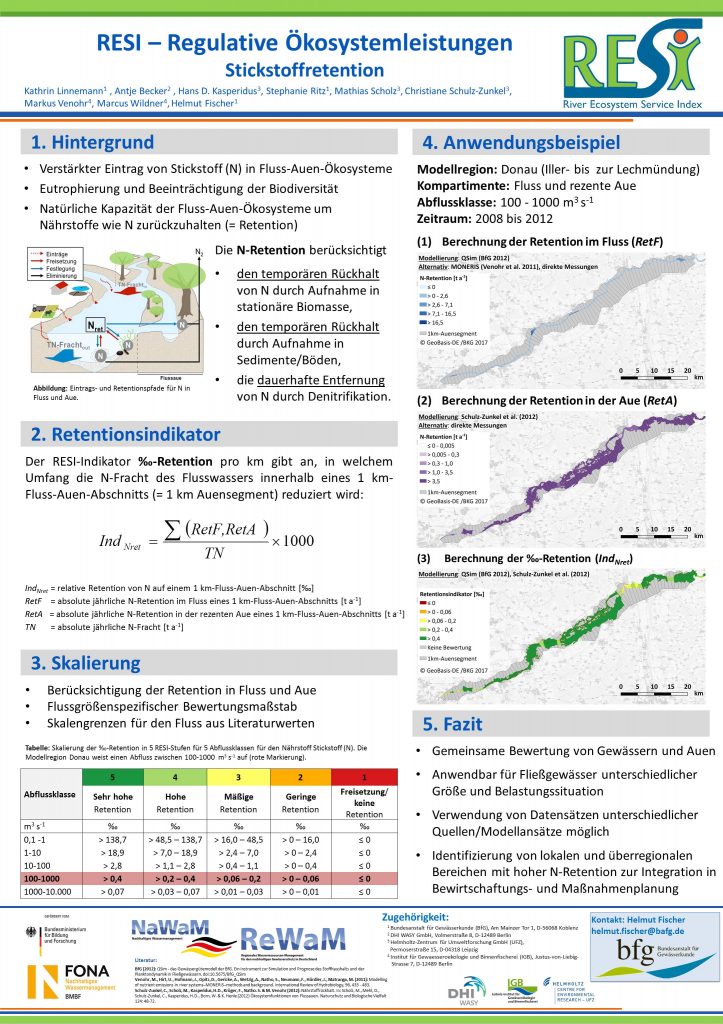3. Metabolism of Matter
The retention of nutrients by metabolic processes in the sediments or uptake in biomass is an important regulative ecosystem service provided by rivers and their adjacent floodplains. Therefore, the quantification and identification of structures that support these ecosystem services is a major task for the current water management strategies, especially regarding the goals of the European Water Framework Directive. In general, the nutrient retention capacities along river corridors is ruled by the metabolism of the river itself (influenced by its hydromorphology and by external nutrient inputs) and by the retention capacity of the floodplains (determined by their connectivity to the river and by their integrity). The RESI module 3 aims to quantify and to assess the most important nutrient retention pathways along these river-floodplain ecosystems, i.e. the retention of N and P, the assimilation and degradation of organic matter and the carbon sequestration.


